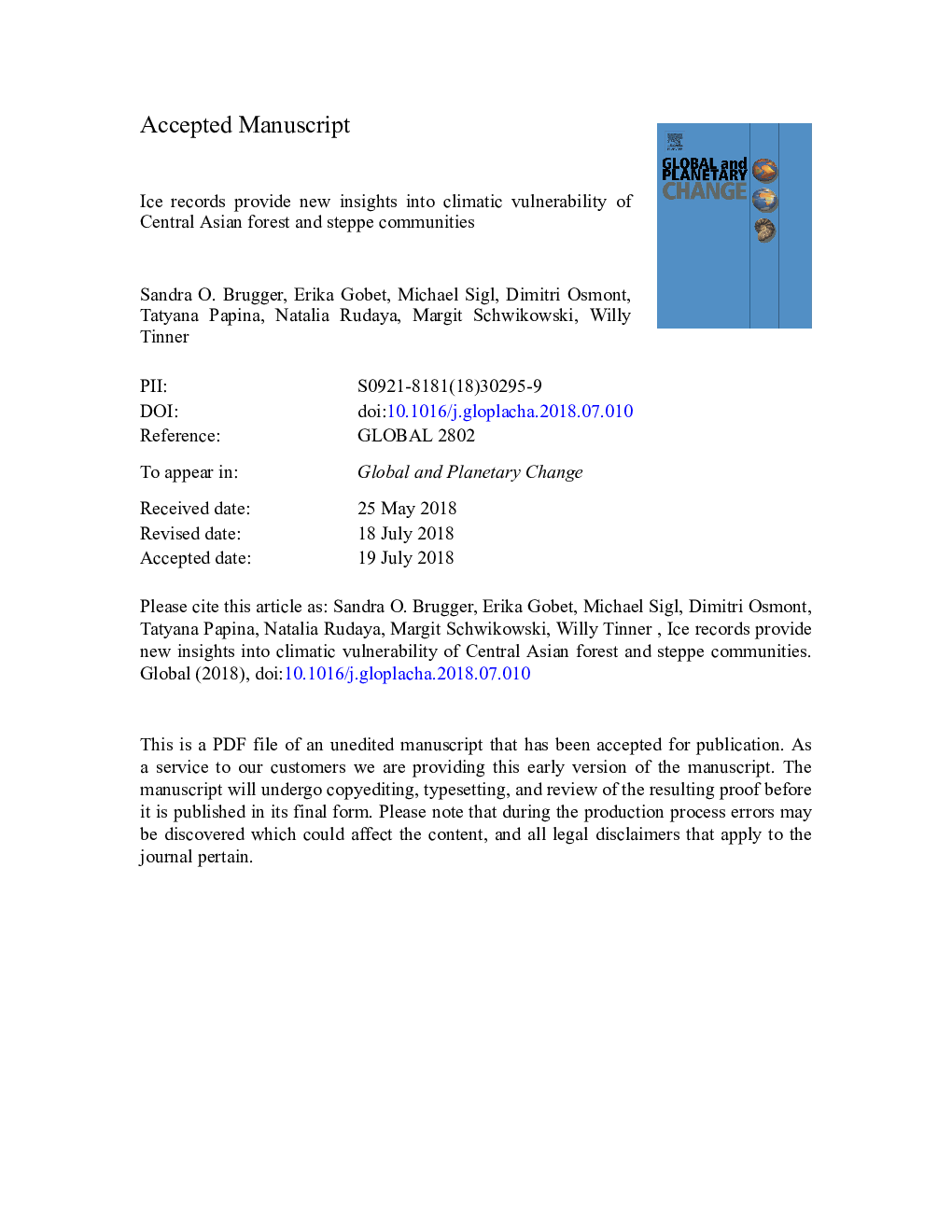| Article ID | Journal | Published Year | Pages | File Type |
|---|---|---|---|---|
| 8867448 | Global and Planetary Change | 2018 | 39 Pages |
Abstract
Forest and steppe communities in the Altai region of Central Asia are threatened by changing climate and anthropogenic pressure. Specifically, increasing drought and grazing pressure may cause collapses of moisture-demanding plant communities, particularly forests. Knowledge about past vegetation and fire responses to climate and land use changes may help anticipating future ecosystem risks, given that it has the potential to disclose mechanisms and processes that govern ecosystem vulnerability. We present a unique paleoecological record from the high-alpine Tsambagarav glacier in the Mongolian Altai that provides novel large-scale information on vegetation, fire and pollution with an exceptional temporal resolution and precision. Our palynological record identifies several late-Holocene boreal forest expansions, contractions and subsequent recoveries. Maximum forest expansions occurred at 3000-2800â¯BC, 2400-2100â¯BC, and 1900-1800â¯BC. After 1800â¯BC mixed boreal forest communities irrecoverably declined. Fires reached a maximum at 1600â¯BC, 200â¯years after the final forest collapse. Our multiproxy data suggest that burning peaked in response to dead biomass accumulation resulting from forest diebacks. Vegetation and fire regimes partly decoupled from climate after 1700â¯AD, when atmospheric industrial pollution began, and land use intensified. We conclude that moisture availability was more important than temperature for past vegetation dynamics, in particular for forest loss and steppe expansion. The past Mongolian Altai evidence implies that in the future forests of the Russian Altai may collapse in response to reduced moisture availability.
Related Topics
Physical Sciences and Engineering
Earth and Planetary Sciences
Earth-Surface Processes
Authors
Sandra O. Brugger, Erika Gobet, Michael Sigl, Dimitri Osmont, Tatyana Papina, Natalia Rudaya, Margit Schwikowski, Willy Tinner,
